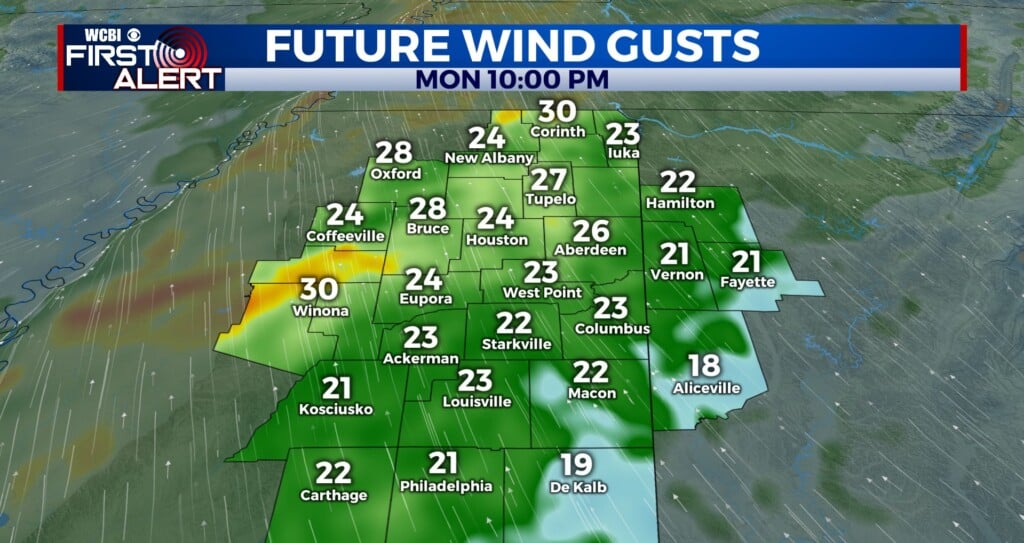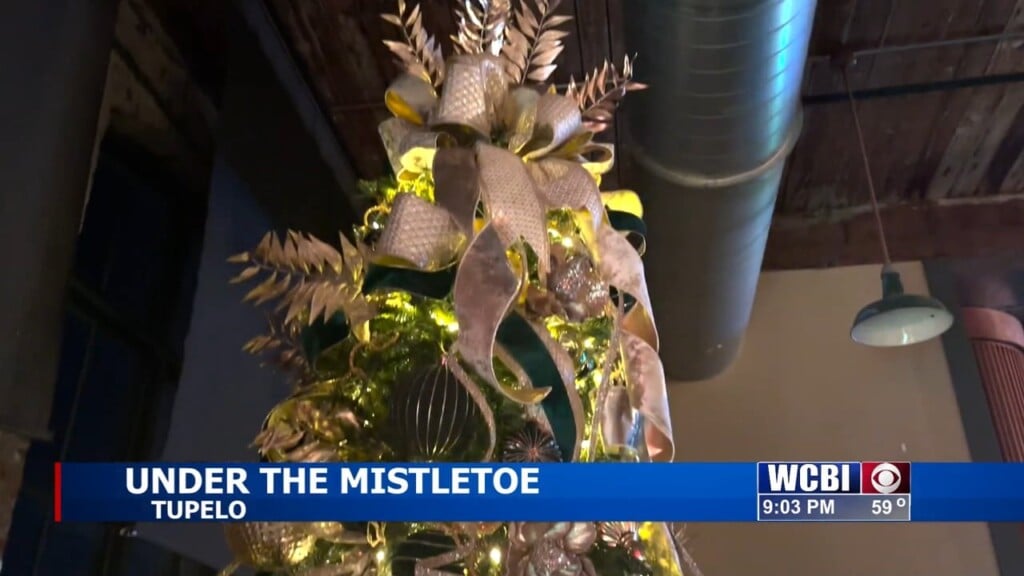Worker who died was never moved into new role, away from sick inmates
After a 39-year-old federal prison employee died and later tested positive for the new coronavirus, employees are speaking up about what they said are unsafe conditions at the facility where she worked.
The Bureau of Prisons on Friday confirmed its first staff death potentially due to COVID-19. Robin Grubbs, a caseworker at the United States Penitentiary in Atlanta, was found dead in her home Tuesday and posthumously tested positive for the virus,
a BOP spokesperson said.
CBS News spoke with four correctional officers at USP Atlanta who complained of insufficient access to protective equipment and inconsistent communication about how many staff and inmates were infected at any given time.
“Already, it’s a stressful job. Already, you don’t ever know what you’re walking into, but to add this on, this pandemic, where it could jump on you and just take your life away like that, it’s mind-boggling. It’s terrifying,” said one correctional officer who was a close friend of Grubbs.
Grubbs’s office, employees said, was located in the “Baker 3” unit, a previously empty area where the facility had begun to house inmates who were sick or exposed to the coronavirus. One friend said Grubbs had talked about not being provided with equipment to stay safe and that she was trying to get out of the unit.
Grubbs was most recently a case manager and employees remembered her as a hard worker who just last month had scored a promotion to a job helping released inmates transition back into society. The position would have landed her an office in a different building. As the illness spread, she told friends she repeatedly asked to assume her new position and move to her new office but was never able to start her new job.
Taneka Miller, Grubbs’s colleague and executive secretary of the union representing USP Atlanta employees, said she spoke to Grubbs last week. “She was like, ‘Girl. Oh my God, they won’t let me go for whatever reason. I’m so ready to go. I’m so ready to go,” Miller said.
Jacquetta Rosemond, union treasurer and paint worker supervisor at USP Atlanta, was surprised that Grubbs hadn’t moved to a different floor. As a case manager for the Baker unit, Grubbs would have been assigned to work with inmates on the first two floors of the building, but not with the sick and isolated inmates in Baker 3, Rosemond said.
“She didn’t even get to go to her new job,” Rosemond said. “There was really no reason for her to stay on that unit… Those particular inmates in that unit were not on her caseload.”
“Everything was on backorder”
A former colleague said that when the illness first hit the federal prison system, Grubbs tried to purchase her own mask. “All she kept telling me was that she didn’t want to catch the COVID-19. So she personally bought some masks, but, you know, everything was on backorder,” the colleague said.
Miller said even surgical masks weren’t readily available until last week when the prison began providing them weekly to each staff member. Three employees who ran into Grubbs in other units in the facility the week before she died said they saw her wearing either no mask or a surgical mask, and none said they had seen her with an N-95 mask.
Employees said that each USP Atlanta staff member would have had access to at least one N-95 mask starting around the end of March, but they needed to be fit-tested first. But Rosemond and Miller said that some officers weren’t tested until April, while others were unwilling to reuse their single N-95 mask day after day.
When asked about the availability of masks, claims of inconsistent communication and when Grubbs was scheduled to assume her new role, a Bureau of Prisons spokesperson on Sunday sent the following statement: “We can acknowledge the death of an employee at USP Atlanta, however, there is no information or evidence relating to a cause of death.” The agency declined to comment on the specific concerns raised by staff.
Rosemond and Miller told CBS News in March that Atlanta employees — many of whom are charged with patting down hundreds of inmates per day — could not reliably access gloves. Some staff members would purchase and wear their own gloves, Miller said, but many didn’t own their own gloves and would use bare hands to pat-search inmates.
Rosemond and Miller said management distributed more PPE this month, but access remains inconsistent and many staff wished it had come sooner.
“Word of mouth”
For weeks, Atlanta employees have told CBS News they wished management would notify them more frequently about the number of staff and inmate cases at the facility.
“The communication is horrible. It’s late, it’s last minute, and it’s not full information,” Miller said. “It’s like they’re sitting on the information.”
Miller said 13 days after she was allegedly exposed to the virus on the job, a member of the medical staff contacted her and informed her that she’d been exposed. Because the incubation period was only 14 days and she hadn’t experienced any symptoms, the staff member told her that she should come back to work for her next shift.
“I was highly pissed off,” Miller said. “I come home to a 2-year-old every day who does not have the best immune system.”
After the Georgia Bureau of Investigation Medical Examiner’s Office informed BOP that Grubbs had posthumously tested positive for COVID-19, Woods sent a memo Friday to notify staff.
A BOP spokesperson said that Grubbs’s official cause of death has not yet been determined, as her autopsy is not yet complete.
Prior to last week, three staff members told CBS News they were only officially informed of one inmate and two staff cases of COVID-19 at the Atlanta prison. On Thursday, Woods said in an email to staff that the facility had “six staff and 12 inmate positive cases for COVID-19.” On Friday, the BOP publicly reported three staff and eight inmate positive cases.
Atlanta employees said they were confused by the discrepancy. Other than those two emails, Rosemond said, “everything else was word of mouth.”
“I don’t feel safe,” another correctional officer said. “We’re not being informed of how the numbers have changed.”
When asked about the discrepancy, a BOP spokesperson said, “The positive test numbers are based on the most recently available confirmed lab results involving open cases from across the agency as reported by the BOP’s Office of Occupational Health and Safety. BOP field sites may report additional updates throughout the day. Data on the dashboard is subject to change based on additional reporting by field sites.”
As of Sunday, the Bureau of Prison said 495 federal inmates and 309 staffers have tested positive for COVID-19 nationwide. A total of 155 inmates and 29 staff have recovered from the disease, while 21 inmates have died. Since Attorney General William Barr encouraged the use of home detention on March 21, a total of 1,280 inmates have been sent to home confinement.
Rosemond said that as a case manager, Grubbs was at level 11 in the federal service pay scale, which would have put her annual salary somewhere between $67,437 and $87,667.
Earlier this month, the union that represents prison staff, as well as 700,000 other federal employees, filed a class-action lawsuit against the BOP and other agencies for Hazard Pay, which would increase their hourly wage by up to 25%. The BOP declined to comment on the lawsuit.
The lawsuit alleges a pattern of employee exposure to COVID-19 due to lax safety standards. The complaint highlights the case of one BOP employee at FCI Oakdale who was given only gloves to wear as personal protective equipment while escorting an inmate to a nearby hospital. The employee later learned the inmate was sick with COVID-19.
Grubb’s final days
Grubbs’s colleagues described her as someone who savored life. She was a passionate Atlanta Falcons fan and loved trying new restaurants, a work friend said, especially if seafood was involved. She traveled often and was constantly looking forward to her next trip, according to the friend, who said they’d recently fantasized about taking a trip to Belize this fall after the pandemic calmed down.
Grubbs was an Army veteran and leaves behind her brother, parents, two grandmothers, and her beloved Yorkie named Louie.
On April 10, she posted a video of her parents after they had dropped off a “Corona Care Package” filled with cough medicine, ginger ale and hand sanitizer. She wrote, “Airhugs because Corona is everywhere at this point… How did I get so lucky?”
Additional reporting by Clare Hymes.





Leave a Reply